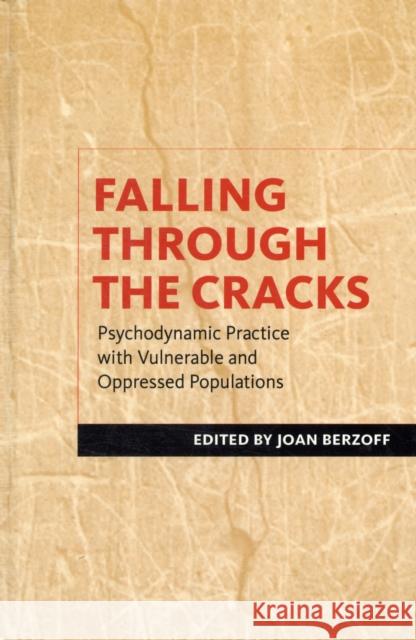Falling Through the Cracks: Psychodynamic Practice with Vulnerable and Oppressed Populations » książka
topmenu
Falling Through the Cracks: Psychodynamic Practice with Vulnerable and Oppressed Populations
ISBN-13: 9780231151085 / Angielski / Twarda / 2011 / 448 str.
Falling Through the Cracks: Psychodynamic Practice with Vulnerable and Oppressed Populations
ISBN-13: 9780231151085 / Angielski / Twarda / 2011 / 448 str.
cena 432,01
(netto: 411,44 VAT: 5%)
Najniższa cena z 30 dni: 430,84
(netto: 411,44 VAT: 5%)
Najniższa cena z 30 dni: 430,84
Termin realizacji zamówienia:
ok. 16-18 dni roboczych
Dostawa w 2026 r.
ok. 16-18 dni roboczych
Dostawa w 2026 r.
Darmowa dostawa!
Psychodynamic theory and practice are often misunderstood as appropriate only for the worried well or for those whose problems are minimal or routine. Nothing could be further from the truth. This book shows how psychodynamically informed, clinically based social care is essential to working with individuals whose problems are both psychological and social.
Each chapter addresses populations struggling with structural inequities, such as racism, classism, and discrimination based on immigrant status, language differences, disability, and sexual orientation. The authors explain how to provide psychodynamically informed assessment and practice when working with those suffering from mental illness, addiction, homelessness, and cognitive, visual, or auditory impairments, as well as people in prisons, in orphanages, and on child welfare. The volume supports the idea that becoming aware of ourselves helps us understand ourselves: a key approach for helping clients contain and name their feelings, deal with desire and conflict, achieve self-regulation and self-esteem, and alter attachment styles toward greater agency and empowerment. Yet autonomy and empowerment are not birthrights; they are capacities that must be fostered under optimal clinical conditions. This collection uses concepts derived from drive theory, ego psychology, object relations, trauma theory, attachment theory, self psychology, relational theories, and intersubjectivity in clinical work with vulnerable and oppressed populations. Contributors are experienced practitioners whose work with vulnerable populations has enabled them to elicit and find common humanity with their clients. The authors consistently convey respect for the considerable strength and resilience of the populations with whom they work. Emphasizing both the inner and social structural lives of client and clinician and their interacting social identities, this anthology uniquely realizes the complexity of clinical practice with diverse populations.










